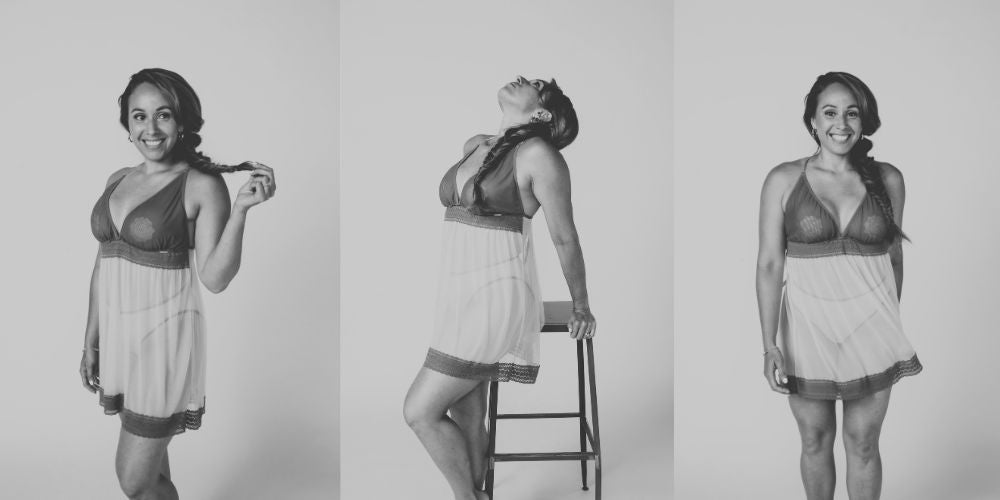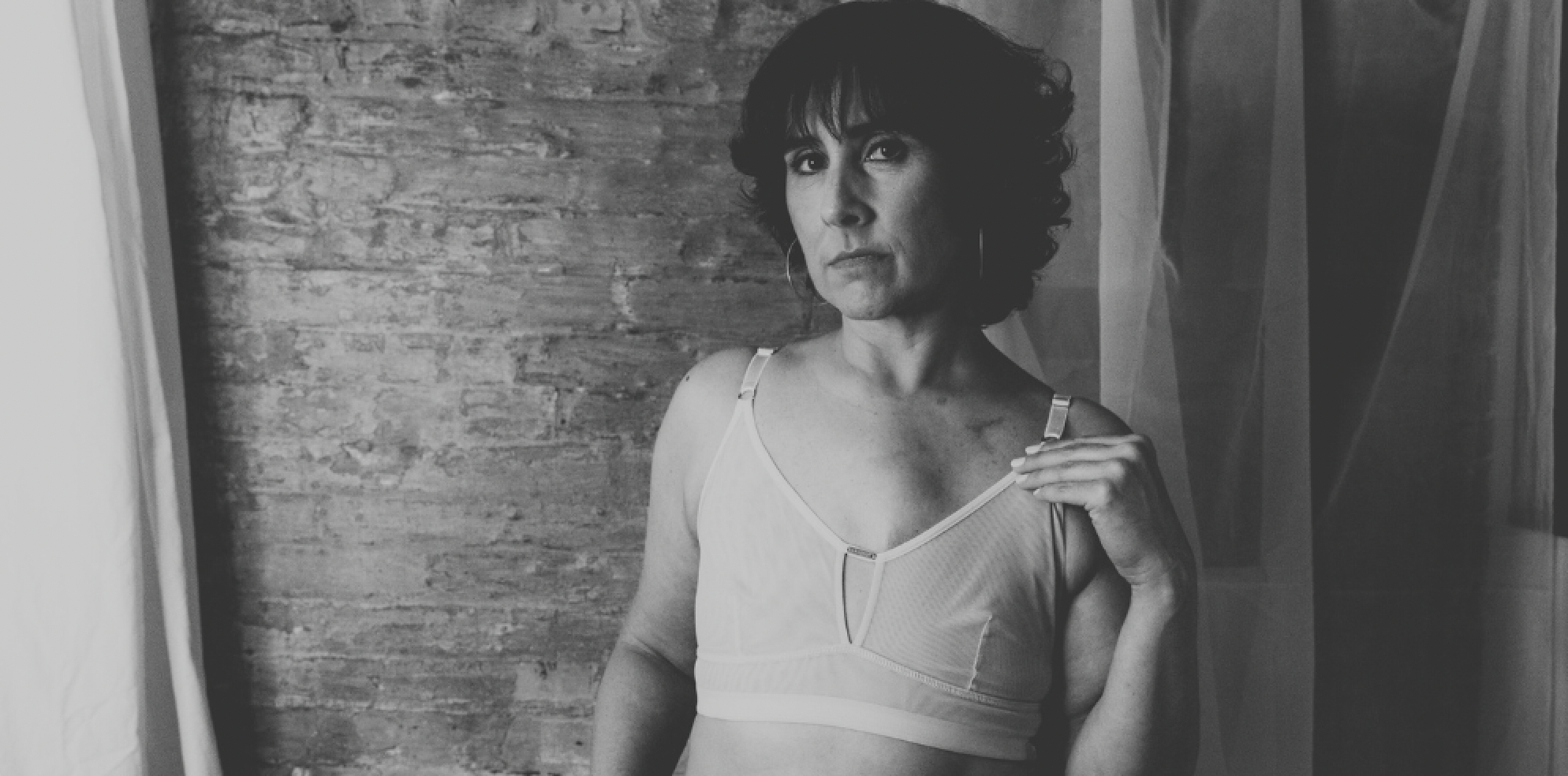My Body and Mind After Breast Cancer
"As I opened my suitcase from my favorite vacation of the year, I could still smell the sunscreen. Sand went everywhere as I took my clothes and bathing suits out one by one. This was a trip that I had grown to look forward to every year that was provided by my husband’s company. But this time around, it was different.
I thought about the beautiful beaches, the delicious food, the loving company and I felt nothing. Absolutely nothing. As I continued to unpack, tears rolled down my face and in that moment, I felt like I was on an island all by myself. The realization that survivorship wasn't the celebratory return to normalcy I had expected broke my heart. I told myself, “I don’t think I’m doing this whole survivorship thing right…”
After some time, my husband walks in our bedroom and finds me lying on the bed crying. He lays next to me and says, “Babe, I think it’s time to talk to someone.” I felt embarrassed. I felt guilty. And I felt sad. As a licensed therapist myself, how in the world did I not see this coming? How did I not recognize the signs of depression and anxiety?
After a few weeks of therapy, I asked my therapist, “So what do you think about all of this? How do you think you can help me if you haven’t experienced breast cancer yourself?”
She said, “Well, I’m not looking at your challenges from a breast cancer lens. I’m looking at your challenges through a trauma lens. You experienced significant medical trauma and the symptoms you’re experiencing are in line with PTSD.”
What? PTSD? No way!
At this point, the negative stories and narratives I had been making up since treatment ended flooded my brain.
“I’m defective now.”
“I’m so stupid and I can’t be an effective therapist anymore.”
“I’m not sexy anymore. My husband isn’t going to like this version of me.”
“People are going to think I have let myself go because of all the weight I’ve gained.” “I’m too anxious and too sad to move forward.”
“I’m not enough.”
Survivorship often doesn't get the same spotlight as the more visible phases of cancer treatment. The chemotherapy, the surgeries, the rounds of radiation—they command attention and evoke an outpouring of support. But what happens after the applause fades? What happens when the pink turns to gray? For many young survivors like myself, the end of treatment doesn't signal the end of the battle; instead, it marks the beginning of a quieter, often lonelier fight.
"For me in the beginning, survivorship felt like I was stuck in a dark room with a monster and I couldn’t find the light switch to let myself out."
The physical reminders of cancer are evident—scars, a changed body, the side effects of ongoing medication. Yet, it's the mental scars that are harder to articulate. The anxiety and depression, the "survivor’s guilt," the pervasive fear of recurrence—these are struggles that can't be seen, often making them harder to understand and address.
During my recovery, I felt an immense pressure to return to 'normal,' to embody the strength and inspiration others saw in me. But internally, I grappled with a new reality where 'normal' seemed forever out of reach.
This internal conflict is not uncommon. Many young survivors report feeling isolated in their experiences, struggling to find peers who can relate to the depth of their emotional turmoil. This disconnection can exacerbate feelings of depression and anxiety, turning survivorship into a solitary path, where each step forward feels overshadowed by the possibility of steps back.
Recognizing my need for support was a pivotal moment in my journey. When my husband gently suggested I speak to someone, it was both a relief and a revelation. I wasn't failing at survivorship; I was simply navigating the unseen aftermath of a disease that had threatened my life more than once. Therapy, coupled with the courage to reach out to online communities of young breast cancer survivors, introduced me to a world where my feelings were validated and shared.
This connection inspired me to found the Boobie Queen Company, a non-profit dedicated to supporting young survivors like myself through initiatives like BreastRest Retreats. These retreats and the community they foster help address the unique challenges of young breast cancer survivors, offering a space to heal not just physically, but emotionally and mentally. Here, we don't just share stories of survival; we share in the creation of a new narrative—one that embraces our vulnerabilities and transforms them into sources of strength. We take survivors from their isolated islands and take them to a place with other women that get it. Together, they embrace their Boobie Queen life.

As we observe Mental Health Awareness Month, it's crucial to acknowledge the silent struggles that accompany physical recovery. Mental health support for cancer survivors needs to be as accessible and comprehensive as the treatments for the disease itself. Survivorship isn't just about living; it's about living well, and true healing encompasses both the body and the mind.
In sharing my story, I hope to illuminate the often-overlooked mental health challenges of survivorship and advocate for resources that support not just the physical aftermath of cancer but the emotional resilience needed to truly heal. Let’s start more conversations, build more communities, and offer more support. After all, community heals what chemo can’t."
- Whitney










